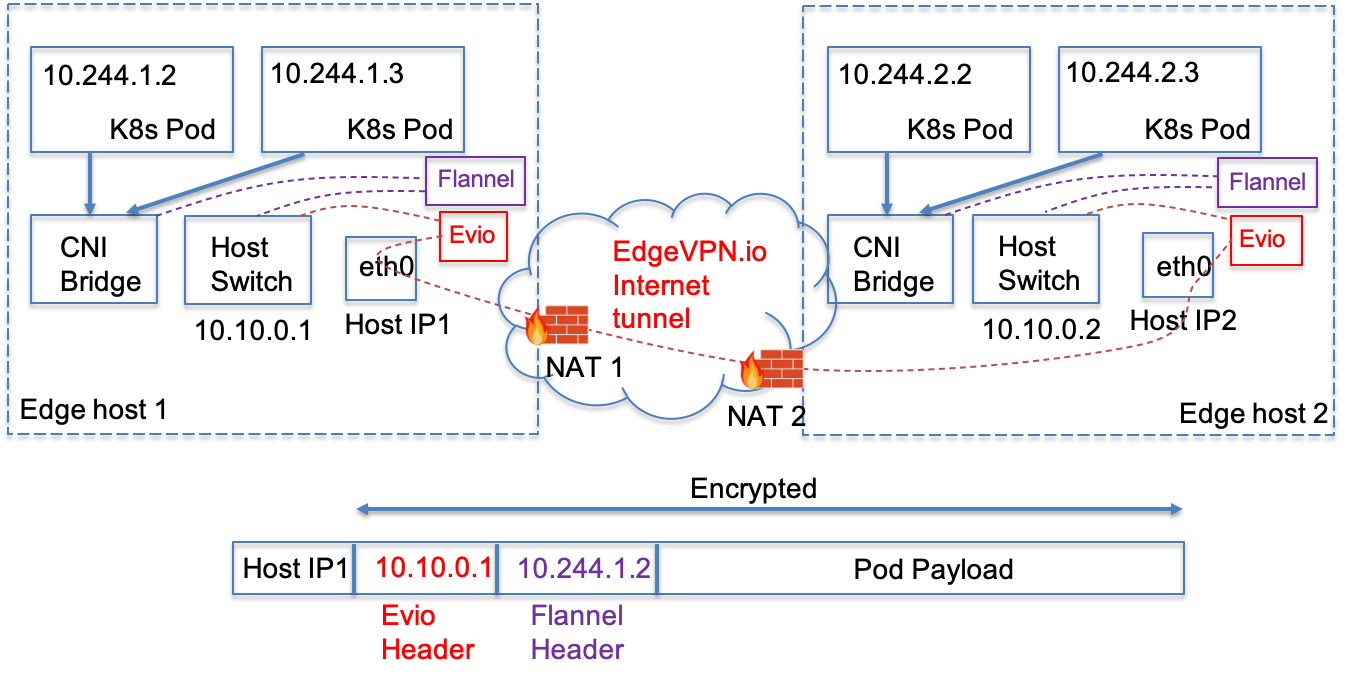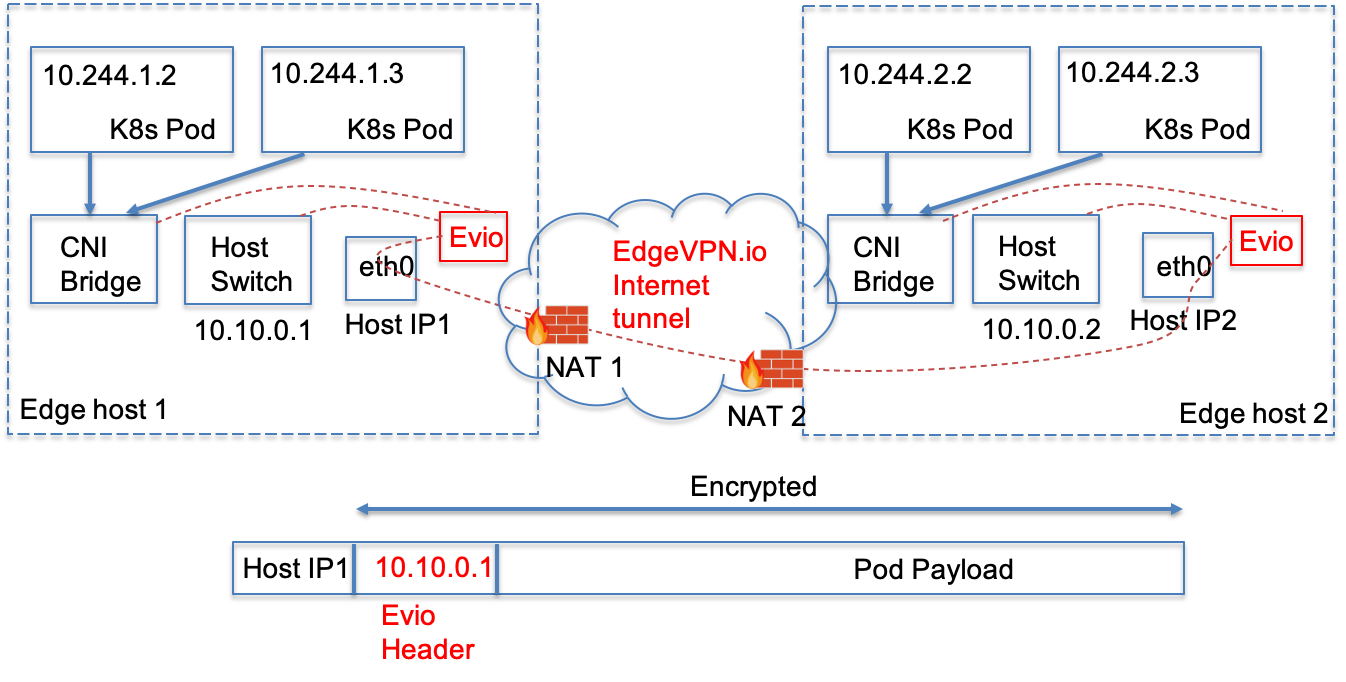Introduction
EdgeVPN.io provides a virtual network foundation for the deployment of various unmodified platforms and applications. A widely-used platform for the deployment of container-based services is Kubernetes.
Kubernetes is often deployed in cloud data centers, where the assumption is that all nodes are in the same address space - i.e., there are no NATs between Kubernetes hosts/pods. However, when deploying workloads across multiple edge networks, this is seldom the case - nodes may be served by different providers, and be assigned private, NATed addresses.
Enter EdgeVPN.io (Evio) - it provides a foundational virtual network layer that exposes the networking model that Kubernetes requires, essentially presenting Kubernetes daemons with an enviroment that is logically the same as they would encounter in a data center. Thus, EdgeVPN.io allows deployments across multiple disparate cloud/edge networks, where private addresses, NATs and firewalls are not uncommon - without any changes. In addition to NAT traversal, the Evio overlay virtual network is scalable, resilient, and self-configuring in response to nodes joining and leaving the cluster, greatly simplifying the management of the cluster’s network. In combination with Kubernetes, Evio allows deployment of containerized, micro-service workloads spanning cloud and edge resources to support “fog” computing for processing near IoT sensors/actuators.
Deployment modes
There are two different ways Evio can be used to support Kubernetes (K8s) deployments, both of which rely on the use of CNI plugins:
Flannel
The Flannel CNI plugin is used in many K8s deployments. Like Evio itself, Flannel creates an overlay network that exposes a virtual network namespace to K8s pods and uses encapsulation to tunnel messages between pods. Unlike Evio, however, Flannel does not support NAT traversal. Flannel can, however, leverage Evio’s NAT traversal and virtualization - it’s possible to deploy a Flannel overlay atop the Evio overlay:

Evio CNI plugin
While Flannel works unmodified atop an Evio overlay, there is a performance price that is paid: double-encapsulation. In essence, messages sent among pods are encapsulated twice (by Flannel, and by Evio). To address this drawback, Evio has its own CNI plugin, which allows messages to be encapsulated only once - by Evio:

Choosing a deployment mode
Both approaches outlined above - Flannel and Evio CNI plugins - are possible. Which one is right for you?
-
If you are already a user of Flannel, or if would like to test Evio for K8s for the first time, the Flannel approach is the simplest to deploy; follow the documentation on using Evio with Flannel for more information on how to configure and deploy Evio for K8s.
-
If you want to extract the best performance and avoid the double-encapsulation overhead, follow the documentation on deploying the Evio plugin for more information on how to configure and deploy Evio and the CNI plugin for K8s.